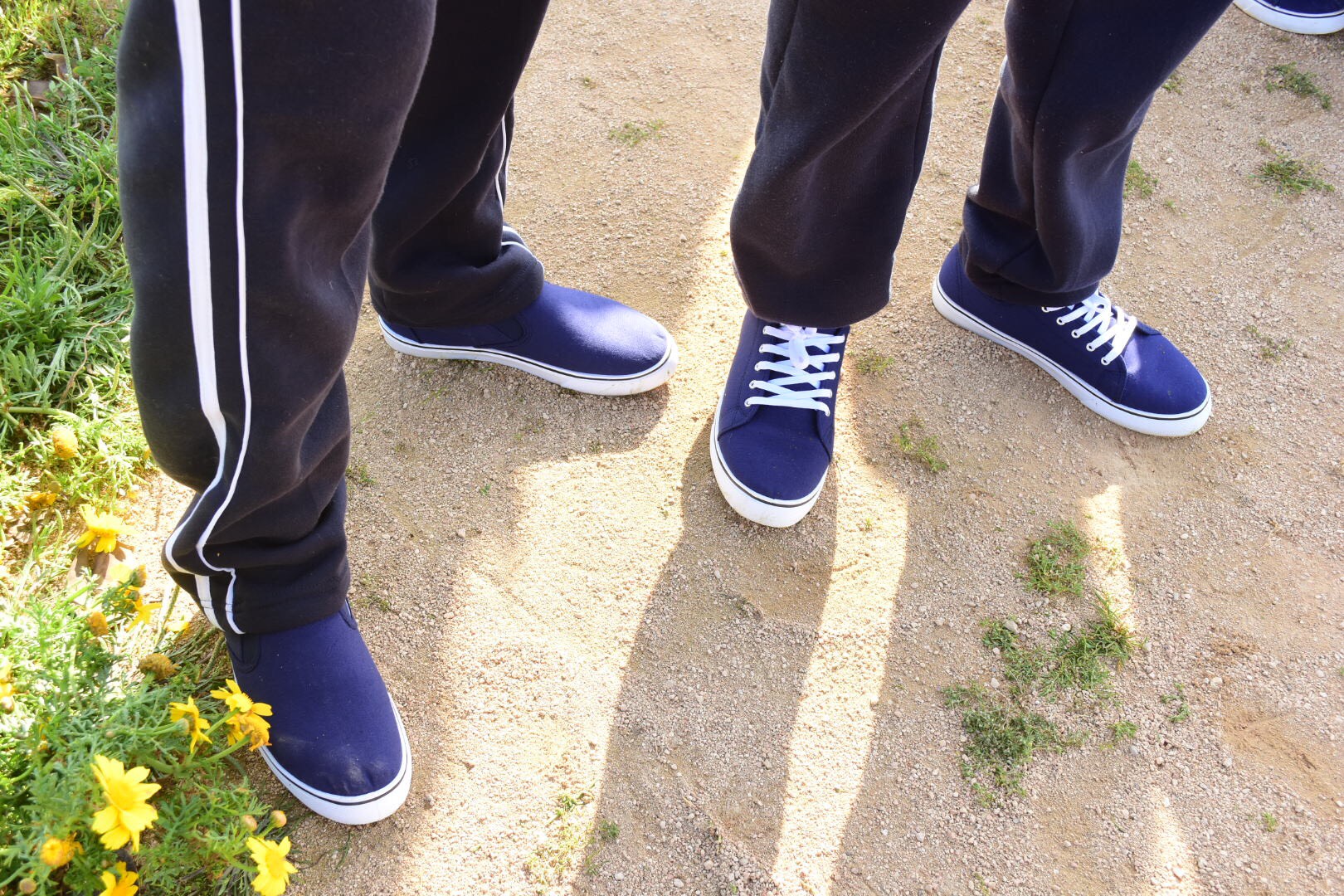Dispatches from the Mediterranean

Standing on a soccer field on an island in the Mediterranean, it’s hard to understand how it came to this: how did this Italian island just north of Africa somehow become the frontline of the Mediterranean migration crisis?
Refugees, migrants, and asylum-seekers come to this island from places like Darfur, Eritrea, Gambia, and Nigeria. They survived unimaginable journeys across unforgiving desert, experienced unthinkable horrors when arriving in Libya, and endured traumatic boat journeys across the Mediterranean sea. Several hundred have drowned in just the first few months of 2017. Once rescued by the Italian Coast Guard or other search and rescue responders, they are brought to Lampedusa.
My colleague Izza Leghtas and I spent last week on Lampedusa interviewing asylum-seekers and migrants who had just made the treacherous journey across the Mediterranean in search of safety and a better life. We traveled to the island to better understand the conditions inside Libya from the people who were most recently there.
They survived unimaginable journeys across unforgiving desert, experienced unthinkable horrors when arriving in Libya, and endured traumatic boat journeys across the Mediterranean sea.
It’s clear that European Union leaders want to prevent Mediterranean crossings, but for the people seeking refuge in Italy, that means they may have no other choice but to stay in Libya, a country many of the people we met call hell on earth. We’ve listened to story after story of detention, abuse, and sexual violence perpetrated by smugglers, human traffickers, and even Libyan authorities.
“The suffering is too much,” one asylum-seeker told us.
“I couldn’t imagine there was a country like that on this planet,” another one said.
“The level of brutality is unbelievable,” an aid official remarked.
Back on the soccer field in Lampedusa, I met a Simon*, a young man who fled persecution in Gambia. Simon was kidnapped on his route through Libya, taken to a center, and beaten when he could not pay the $8,500 the smugglers demanded for his release. He was forced into manual labor on a farm to gain his release and to pay for the boat to Italy.

“Everybody lost hope. People thought it was our last day of our life. But we prayed. Now we are just thanking them, because they rescued us.”
Some of the people we spoke with survived on only bread and water while in detention. Many were held for months. They spoke of migrants being beaten by smugglers or people working in detention centers, and people dying because of the inhumane conditions. Ahmad, an asylum-seeker from Darfur, described his time in a Libyan prison run by people wearing “military uniforms,” who would take wood to beat the migrants. “All were abused,” Ahmad said.
Once they have enough money for the boat journey, people are packed onto unseaworthy vessels as if they are human cargo. They are pushed out to sea with no assistance on-board, left to drift in the Mediterranean with few — if any — instructions on what to do with the boat, given satellite phones with vague instructions on how to call for help, and left to pray that they would be rescued before the sea took them first.
“Everybody lost hope. People thought it was our last day of our life. But we prayed. Now we are just thanking them, because they rescued us,” said John, another Gambian asylum-seeker, referring to the search and rescue teams who saved them at sea.
The refugees we met in Lampedusa were extremely grateful for their rescue and to have arrived on European soil, but they were uncertain as to what lies ahead for them.
“I don’t want to go back to my country now. It’s dangerous. Too much,” a Ghanaian asylum-seeker told me, recalling threats he faced because of his particular situation in Ghana. He had traveled with his wife for three months to make it to Italy. Along the way, she had a miscarriage in the desert because of the stress and trauma of the journey. She grew quiet recounting the ordeal — yet another tragic loss of life on this forsaken journey.
2016 already set a tragic record for the number of deaths at sea in the Mediterranean, which is now the world’s most dangerous migration route. As the body count continues to rise in the Mediterranean just months into 2017, will European leaders do what they can to prevent unnecessary deaths at sea?
The Ghanaian couple held hands as they told me their story from the Lampedusa migrant “hot spot”, a center for recent arrivals that was hosting around 600 people, way beyond its maximum capacity of 381. Arrivals in the Mediterranean surged last week, with more than 8,000 people rescued as the sea calmed and the good weather led to improved sailing conditions. And because of Lampedusa’s close proximity to Libya, it is the closest disembarkation point for the search and rescue providers.
Some of the officials and humanitarians we spoke with predict that the upward trend in arrivals will not only continue this year but may even set records this summer. 2016 already set a tragic record for the number of deaths at sea in the Mediterranean, which is now the world’s most dangerous migration route.
As the body count continues to rise in the Mediterranean just months into 2017, will European leaders do what they can to prevent unnecessary deaths at sea? Will they prioritize search and rescue operations to prevent the deaths of people like Simon from Gambia, Ahmad from Darfur, and the Ghanaian couple I met in Lampedusa? They already suffered so much on their journey through Libya. Europe can and should do better than to condemn them to a boat journey they may or may not survive.
*Names have been changed.